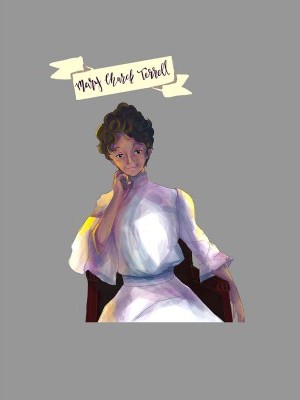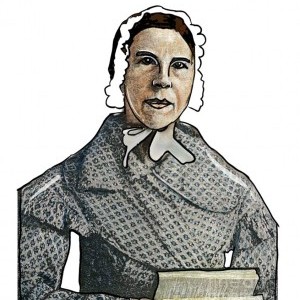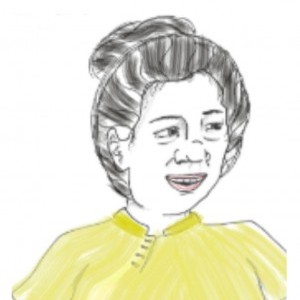Maddie, Olivia, Joanne, Detter, Tsang & Zhao
Castilleja School | Palo Alto, CA | 8th
Historical Figure I Admire
Mary Church Terrell
Mary Church Terrell, known in her family as “Mollie”, was born on September 23, 1863, in Memphis, Tennessee, and she died on July 24, 1954. Her parents, Robert Reed Church and Louisa Ayers, were freed slaves of mixed race. Her mother was an entrepreneur and ran a hair salon. This was believed to be the first hair salon to be ran by a African-American woman. Her father invested in real-estate. He was known as the first African-American millionaire in the South.
In 1891, she married Robert Heberton Terrell. Together, they had three children, two of whom died in infancy. Her daughter, Phyllis Terrell, was the only child who lived to adulthood. The Terrells also adopted one child who was named Mary.
Mary Church Terrell attended Antioch College Model School from 1870-1874 for elementary and secondary schooling. She then majored in Classics at Oberlin College, where she received her bachelor's degree in 1884. Terrell taught modern languages in Wilberforce University. She later moved to Washington D.C. to teach Latin at M Street School. She then studied in Europe where she became fluent in French, German, and Latin.
Mary Church Terrell was one of the few colored women invited to attend the National American Woman Suffrage Association (NAWSA) meetings, giving her the opportunity to meet Susan B. Anthony. She formally addressed issues within the African-American community, and gave speeches about her own experience as a African-American woman in the nation's Capitol. These meetings sparked a desire in Mary Church Terrell's heart to form a group where African-American women could talk about racial inequalities. She founded the Colored Women's League alongside other colored women, such as Ida D. Bailey. The Colored Women's League focused on promoting the rights of African-American people. From this league, came the birth of the National Association of Colored Women, where Mary was elected as the first President.
What the Project Means to Me
As children, we have never learned about the stories of the amazing women who changed America. George Washington, Thomas Jefferson, Abraham Lincoln, and Martin Luther King Jr. were the names we were given that “represented” the history of our nation. Even when we were taught the stories of famous historical women, they did not represent the wide array of experiences that shape our America today. As girls, we began to notice this when we first realized there was never a female president in the history of the United States, but in reality, our lack of knowledge surrounding women leaders was a much bigger problem. We were never given the opportunity to learn deeply about the other fifty percent of our history.
Before this project we had only heard about figures like Susan B. Anthony or Elizabeth Cady Stanton who were major parts of the movement but didn't represent the diverse identities of the women who participated. Researching Mary Church Terrell helped open up our eyes to the African-American women who were overcoming racial and gender barriers to vote. Terrell is an inspirational person who is important to the history of women's rights and colored people’s rights. Mary Church Terrell is not only a figurehead suffragist but as an educated colored woman of her time she was defying stereotypes and setting an example for many more women to come which made her stand out to us. She is inspiring us to follow in her footsteps and stand up for what we believe in regardless of race, history, gender or class.
Without the work of thousands of suffragists and suffragettes, half of the American population would go without representation. By voting, we make America more diverse and equal by hearing the opinions of people with different experiences. Even if it means voting for the student council president or the president of America, every vote represents a person who has an opinion to share and a determination to make their demands heard. Voting is like speaking, if you never try to open your mouth or turn in a ballot, your thoughts will never be heard. By voting we benefit our communities and ourselves so we mustn't take this right for granted since many women before us never got the chance to vote. By voting we have to ensure that we make choices that benefit America and never restrict others’ rights. –Olivia, Maddie & Joanne
Explore the Archive
More From This Class
Click on the thumbnails below to view each student's work.Deadline Extended
There's still time to join Women Leading the Way.
Become a part of our storytelling archive. Enroll your class today.
Join the Project



